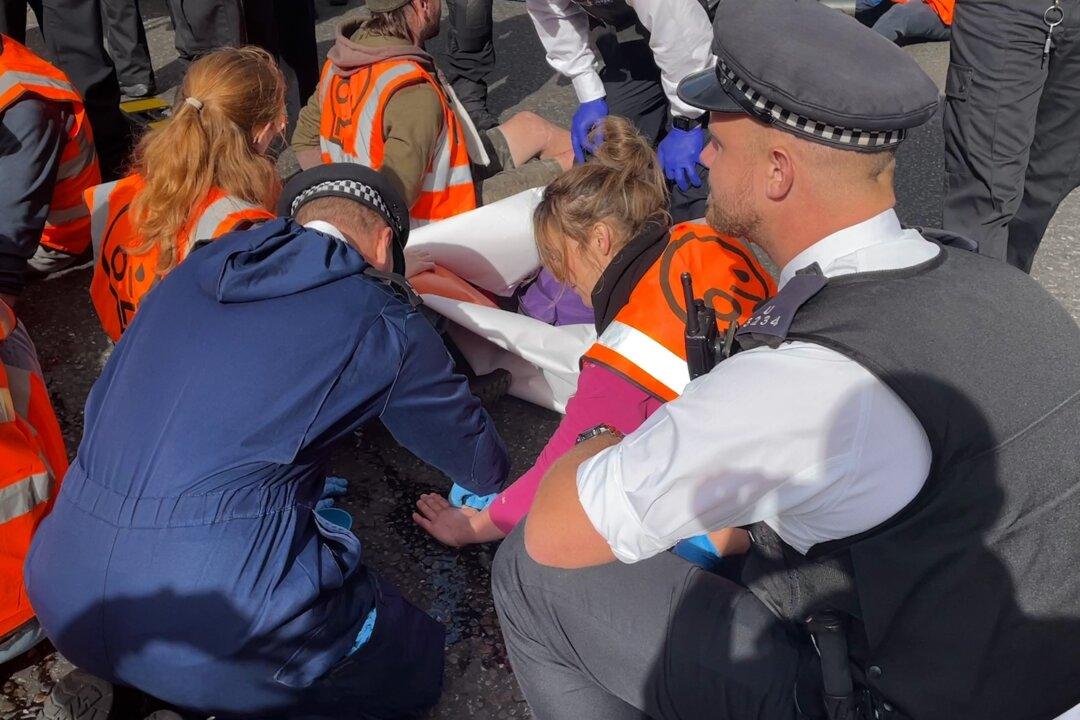In the last 12 months as protesters from Extinction Rebellion and then Insulate Britain and, most recently, Just Stop Oil, have caused chaos for motorists and others going about their daily business, there has been a growing clamour for tougher action from the police.
On Dec. 6 Martin Daubney, a journalist and former Brexit MEP, wrote on Twitter, above a video of French police in action: “Hands up who’d like a police force in Britain like these French bobbies, who simply drag Just Stop Oil protestors out of the road, so motorists can go on their way.”





